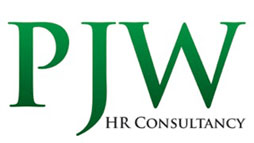The Confederation of British Industry (CBI), which speaks for 190,000 business in the UK, predicts that workplace conflict costs businesses £33 billion per year, taking up 20% of leadership time too.
If not recognised and managed in the early stages, workplace conflict can end up costing a business. Not only financially, but in terms of loyal staff members who may also be lost if they feel forced to leave.
The negative impact on your business may be enough to help you realise that conflict needs to be managed in your workplace but give some thought to the personal impacts too.
The Mental Health Foundation found out that nearly two-thirds of people experience mental health problems. What’s more, 33% of workers admitted they regularly experience sleepless nights due to work stress.
For the sake of your staff as well as your business, effective conflict resolution is key.
So, What is Conflict?
Whether it’s as simple as a disagreement over a work project or as complex as a sexual harassment case, any conflict has the potential to spell out disaster among your team and your business.
The word conflict is usually used in an incredibly broad sense, best defined by American academic, Michael E Porter, as “when a person is faced with a situation that threatens their sense of self-worth or value.”
Workplace conflict is defined as a state of discord which is caused by the actual or perceived opposition of needs, values and interests between people in a work environment.
Disagreeing is Fine…Arguing is Not
The best part about working in a team is that disagreements will happen but more often than not. Colleagues can turn these into a learning opportunity for either party and the broader business. Conflict should be viewed as a positive – it usually means there is a need to change.
Learning how other people think or being introduced to new ways of approaching an objective are examples of this. However, when a disagreement becomes personal and a person’s values or interests are opposed, it can escalate into something more damaging. This is where management needs to intervene and resolve the situation. Before it gets out of hand and morale takes a dent.
Conflict Management
Despite being a catalyst in destructive stress and wasted resources, conflict has the opportunity to become a source of great productivity and restored relationships. Managing the conflict in your workplace requires you to understand the way that your people think and feel. Sometimes, just being empathetic and sympathetic is enough.
Managing the opposition, on the other hand, requires an understanding of the issue at hand. Achieving the end-goal of managing the conflict requires removing the threat to a person’s self-worth through the opposition of their values. In creating a learning opportunity from the conflict, buy-in to move forward from all parties and an agreed goal to work towards, resolution is possible, along with a more productive workplace.
But if you’re struggling to work through conflicts between people in your business on your own, there are trained professionals who can help get things back on track. Contact us for support and more on how to have difficult conversations and resolve conflicts, follow us on Twitter (@PJW_HR) and ‘like’ us on Facebook (PJW HR Consultancy) for our latest blogs and snippets of advice.

